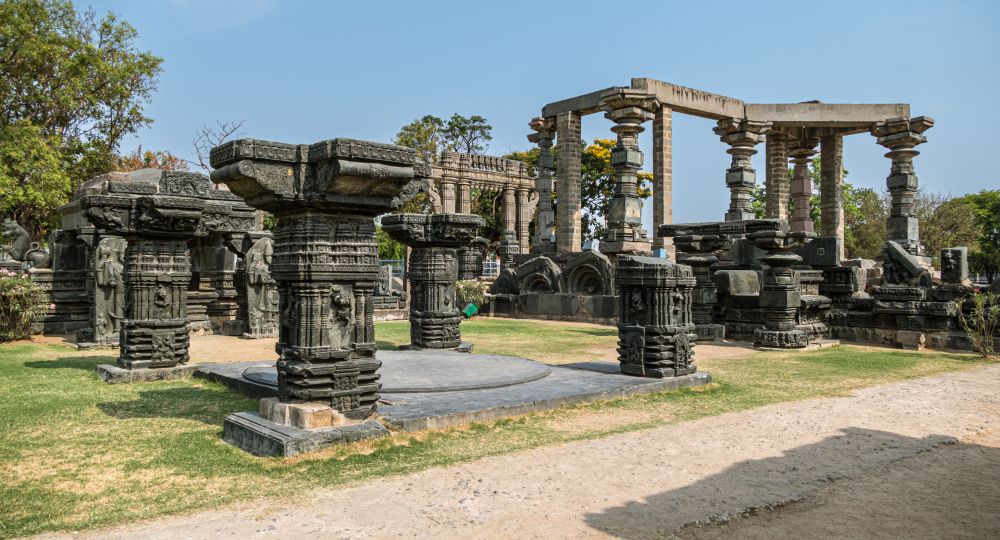

Warangal, an ancient city in the Indian state of Telangana, boasts a rich tapestry of history and culture that has contributed to its status as a vibrant tourist destination. The city’s origins trace back to the 12th century when it served as the capital of the Kakatiya dynasty. This period marked the inception of Warangal's historical significance and the foundation of its tourism history.
The Kakatiya dynasty, under the reign of rulers like Ganapati Deva, Rudramadevi, and Prataparudra, was pivotal in erecting architectural marvels that have stood the test of time. The most notable among these is the Warangal Fort, with its impressive stone gateways known as the 'Kirti Toranas'. These structures remain an enduring symbol of the city’s former grandeur and attract thousands of travelers and history enthusiasts each year.
The tourism history of Warangal saw significant development after India’s independence in 1947, with the government recognizing the potential of Warangal's historical sites. Efforts to preserve and promote these remnants of the Kakatiya dynasty, such as the Thousand Pillar Temple and the Ramappa Temple, were intensified, leading to enhanced tourist infrastructure and accessibility.
The establishment of the Kakatiya Festival, organized by the government, aimed to showcase the cultural heritage of Warangal. This festival became a major attraction, drawing visitors not only for the historical sites but also for the cultural vibrancy of the city, embodied in music, dance, and crafts exhibitions.
A landmark moment in Warangal's tourism history was the inscription of the Ramappa Temple as a UNESCO World Heritage Site in 2021. This recognition has placed Warangal on the international tourism map, ensuring preservation efforts and increasing tourist footfall.
Recently, Warangal has seen an uptick in heritage and eco-tourism. Travelers are increasingly drawn to the scenic Laknavaram Lake and Pakhal Lake for their natural beauty and the opportunities for bird watching and water sports. Adventure tourism is also on the rise, with rock climbing and trekking in the surrounding hillocks gaining popularity.
The government's 'Digital Warangal' initiative, embracing technology to enhance the tourist experience, reflects modern trends. Interactive kiosks, QR code-based information systems, and virtual tours have become the latest tools in enriching visitor engagement with Warangal's historical assets.
From the formidable remnants of the Kakatiya dynasty to the contemporary approaches in digital tourism, Warangal's journey as a tourist destination is a testament to an enduring heritage embraced by modernity. With ongoing efforts in preservation and promotion, Warangal continues to flourish as a hub of culture, history, and natural beauty.